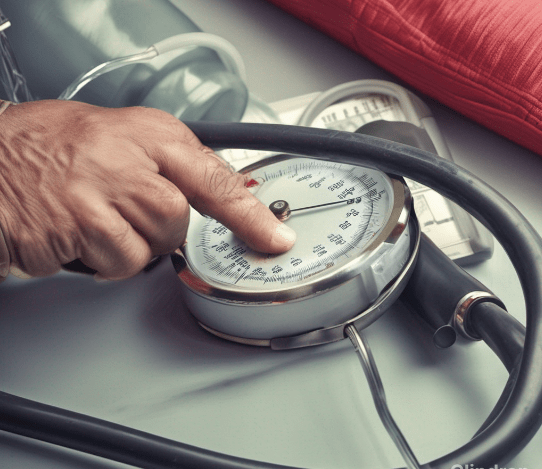5 Warning Signs of Dangerously High Blood Pressure
Introduction To Dangerously High Blood Pressure
High Blood Pressure, otherwise called hypertension, is a typical ailment wherein the power of blood against the walls of the veins is reliably excessively high. It is a critical wellbeing concern around the world, influencing a large number of individuals of any age and foundations. Frequently alluded to as the “quiet executioner,” hypertension is famous for its absence of perceptible side effects in the beginning phases, which makes it especially risky.
Understanding High Blood Pressure
Circulatory strain is normally estimated with two numbers: systolic tension (the larger number) and diastolic tension (the lower number). Systolic strain addresses the power of blood against conduit walls when the heart beats, while diastolic tension demonstrates the power when the heart is resting between thumps. A typical pulse perusing is around 120/80 mmHg (millimeters of mercury) or lower.
Warning Signs of Dangerously High Blood Pressure
A few variables can add to the improvement of High Blood Pressure, including:

Unhealthy Lifestyle
A horrible eating routine, absence of active work, exorbitant liquor utilization, and smoking can raise the gamble of creating High Blood Pressure.
Family History
A family background of hypertension improves the probability of encountering the condition.
Age
Pulse will in general ascent with age, making more seasoned people more helpless.
Gender
Men are bound to have hypertension before the age of 55, while ladies have a higher gamble after menopause.
Ethnicity
Certain ethnic gatherings, like African Americans and South Asians, have a higher inclination to hypertension.
Medical Conditions
Certain ailments, like kidney sickness, diabetes, and rest apnea, can add to hypertension.
Complications
Whenever left unmanaged, High Blood Pressure can prompt extreme unexpected problems, including:
Heart Disease
The expanded power of blood against blood vessel walls can harm the heart and increment the gamble of respiratory failures, cardiovascular breakdown, and other cardiovascular issues.
Stroke
High Blood Pressure can prompt the development of blood clumps, which can impede blood stream to the mind and cause a stroke.
Kidney Damage
The kidneys assume an imperative part in controlling pulse, and uncontrolled hypertension can prompt kidney harm or even kidney disappointment.
Vision Problems
High Blood Pressure can harm the veins in the eyes, prompting vision debilitation or visual impairment.
Aneurysm
The persevering strain on blood vessel walls can make them debilitate and swell, possibly prompting a perilous condition called an aneurysm.
Signs and Symptoms
As referenced before, High Blood Pressure frequently presents no perceptible side effects in the beginning phases. Nonetheless, now and again, people might encounter the accompanying

Severe Migraine
Extraordinary and repetitive cerebral pains can be an indication of perilously hypertension.
Nosebleeds
While normal, relentless and visit nosebleeds can be connected to hypertension.
Shortness of Breath
Trouble breathing or windedness might show the heart’s battle to really siphon blood.
Chest Pain
Unexplained chest agony could be a side effect of hypertensive emergency or heart-related entanglements.
Diagnosis and Treatment
Early detection and effective management of high blood pressure depend on regular blood pressure checks. If an individual is diagnosed with hypertension, the primary approach to treatment often involves lifestyle changes. These modifications may encompass adopting a well-balanced diet, engaging in regular physical activity, reducing salt intake, quitting smoking, and implementing stress management techniques.
In certain cases, healthcare professionals may prescribe medication to achieve effective blood pressure control. It is crucial to closely collaborate with medical experts to devise a tailored treatment plan that suits individual needs.
Conclusion
High blood pressure constitutes a critical health condition necessitating proactive management. To prevent complications and enhance overall well-being, routine blood pressure checks, healthy lifestyle choices, and appropriate medical guidance play a pivotal role. Early intervention is of utmost importance, as heightened awareness and timely action can substantially diminish the risk of hypertension-related complications and promote a healthier and longer life.
